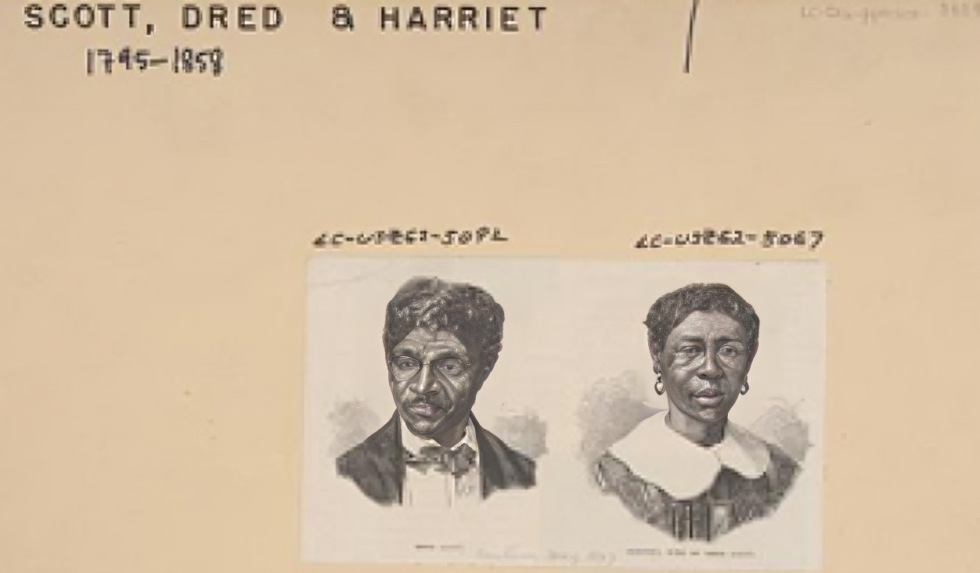
The Dred Scott decision in 1857 was intended by its author, Chief Justice Roger B. Taney, to settle the citizenship question for African Americans. Scott (1795–1858) was a slave in Missouri who was taken to the free state of Illinois and the free federal territory of Wisconsin by his master before returning to Missouri. Abolitionists sued on Scott’s behalf, arguing that since he had lived in a free state and a free territory, he should be declared free. Dred Scott v. Sanford declared that a person of “the African race, whose ancestors were brought to this country and sold as slaves is not a ‘citizen’ within the meaning of the Constitution of the United States,” and they had none of the rights, privileges, or immunities guaranteed to U.S. citizens. The case also invalidated the Missouri Compromise, suggesting that Congress could not abolish slavery without amending the Constitution.
The book you’re referring to is “The Dred Scott Case: Its Significance and Relation to the American Conflict” by author and historian William W. Story, published by the New York Century Company in June 1887. This work provides a detailed examination of the infamous Dred Scott case and its implications.
Dred Scott was an enslaved African American who sued for his freedom in 1857. He argued that his time spent in free states and territories entitled him to emancipation. The case reached the U.S. Supreme Court, which delivered a controversial decision ruling against Scott. The Court declared that African Americans, whether free or enslaved, could not be American citizens and had no standing to sue in federal court. Additionally, the decision stated that Congress had no authority to regulate slavery in the territories.
The case was significant in American history, as it highlighted the deep divisions over slavery and was a precursor to the Civil War. Harriet Scott, Dred Scott’s wife, was also a part of this struggle, as she was involved in the legal fight for their freedom.
William W. Story’s book was published during a time of intense reflection on the Civil War and its aftermath, offering insights into the case and its broader impact on American society and law.